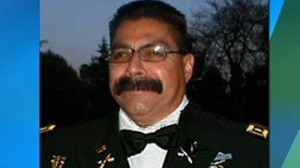Stealing Valor: Should The Stolen Valor Act of 2005 Be Put Out To Pasture?
Any of you out there remember Xavier Alvarez? He’s the reason why politicians are great. I don’t mean great as in they’re great humanitarians who work to better this world, but rather great sarcastically since they are the epitome of shamelessness. Because no matter how big the lie that they are caught in, a bad politician never ceases to fight you on every bit of minutiae while ignoring the bigger picture. And coming soon to a court docket near you, the United States Supreme Court will be reviewing the validity of Alvarez’s minutiae by deciding on the constitutionality of the Stolen Valor Act of 2005.
You see, back in 2007 Alvarez won a seat as a director for Southern California’s Three Valleys Municipal Water District. After he won the election, Alvarez introduced himself as a retired 25-year veteran United States Marine. He also told the audience that he was a Congressional Medal of Honor recipient who had received the honor due to getting injured many times by the same person. You can listen to his original address here.
 All fine and dandy, except the problem was that Alvarez never received the Medal of Honor or for that matter, even served in the military. Alvarez was in fact lying about his service to this country. And under the Stolen Valor Act of 2005, lying about receiving any congressional military medal or decoration is a crime punishable by six months in prison and/or a fine up to $200,000.
All fine and dandy, except the problem was that Alvarez never received the Medal of Honor or for that matter, even served in the military. Alvarez was in fact lying about his service to this country. And under the Stolen Valor Act of 2005, lying about receiving any congressional military medal or decoration is a crime punishable by six months in prison and/or a fine up to $200,000.
What possessed him to lie like this? Who knows. Most likely it was to gain favor among voters. Or maybe it was to keep the lie going since it appears he’s been telling the same story since 2006 when he ran for mayor in Pomona, CA. Regardless, upon being found out, Alvarez worked out a deal with prosecutors that only a politician would want: Alvarez would plead guilty, but would be allowed to challenge the Stolen Valor Act on the grounds that it violates the First Amendment’s protection of free speech. I assume he did this because he wanted even more hate mail.
Anyway, the 9th Circuit actually agreed with him in a heavily contested opinion. Basically, the judges found that the government shouldn’t be able to control what people can and can’t lie about as it would be a prior restraint on free speech. And as much as I hate to agree with them on this, I think their decision is the only logical answer to give.
Before the hate mail comes flooding into my inbox and the angry mob forms outside of my house, please try to put your torches down for a second and give me a chance to explain.
First, Alvarez’s conduct was clearly despicable and an insult to the brave men and women who fight and die for our country. This much we can all agree on. But second, and more to the point, the First Amendment was designed to protect our freedom of expression. It’s one of our most closely guarded rights and for years it’s been understood by the Supreme Court and law professors everywhere that the Constitution frowns upon governmental restraints on expression. Such prior restraints are always reviewed under strict scrutiny, a standard that tells us restraints on speech are only allowed when the government has a compelling interest in the restriction and that the government’s actions are narrowly tailored to meet that need because there are no alternatives available.
Here, while we can agree that protecting the sacrifices made by our servicemen and women is a compelling government interest, the Stolen Valor Act isn’t narrowly tailored to serve that need because better alternatives are available. In fact, a law already exists that protects the same thing; it’s called fraud, which is what Alvarez was also prosecuted for committing. Hence, the Stolen Valor Act is redundant and ultimately an unconstitutional violation of the First Amendment.
Now I realize some may argue that the First Amendment doesn’t protect false statements of facts such as Alvarez’s comments. That exception applies much more strongly in the commercial speech context rather than among private individuals. And with good reason because people say things all the time that they believe are true and later learn were incorrect. Though this latter scenario doesn’t apply to Alvarez, the Stolen Valor Act blurs the line too much on what can and can’t be considered a constitutional restraint on expression (despite the law’s political popularity).
But that’s just my two cents. What do you guys think? Should the United States Supreme Court rule in favor or against the Stolen Valor Act? Is it a necessary law?


Comments